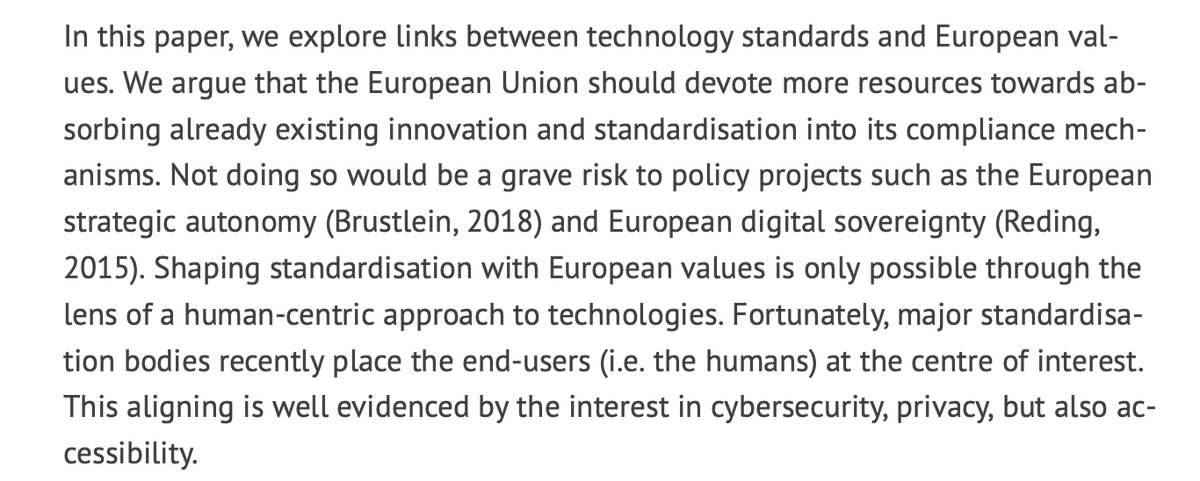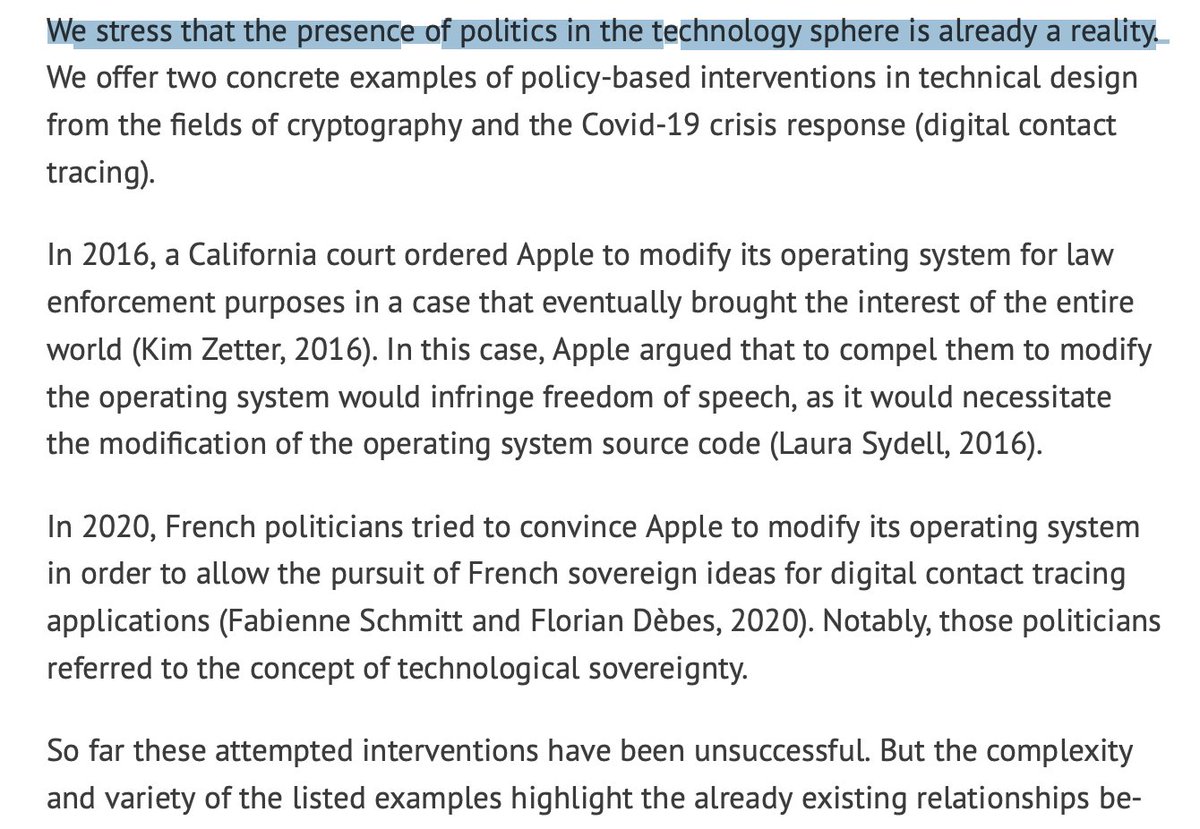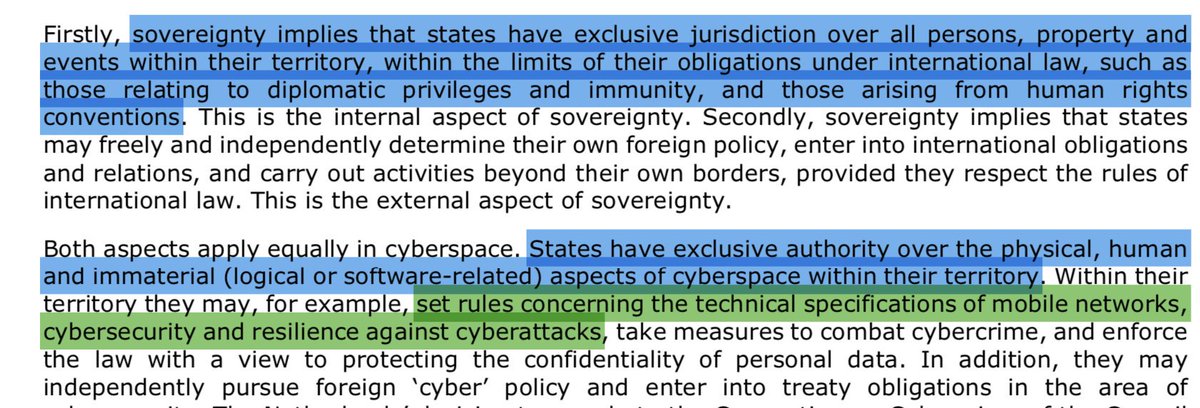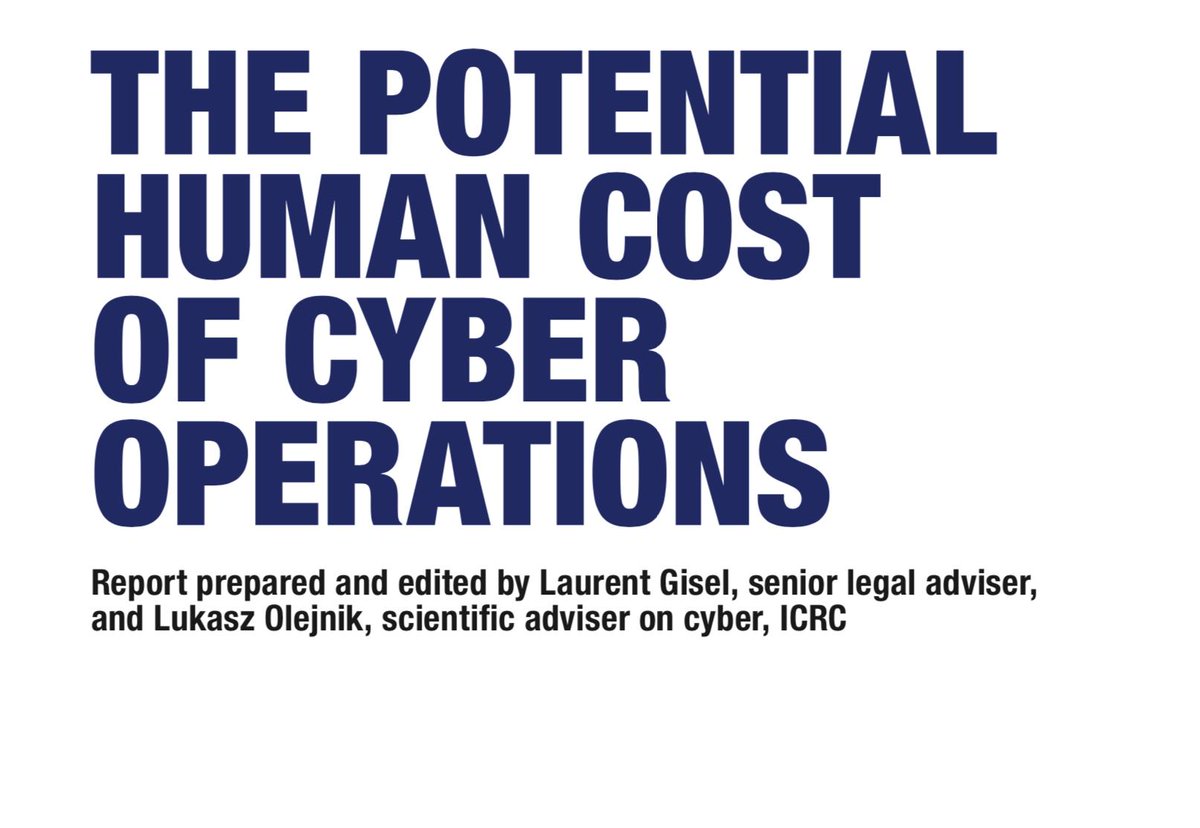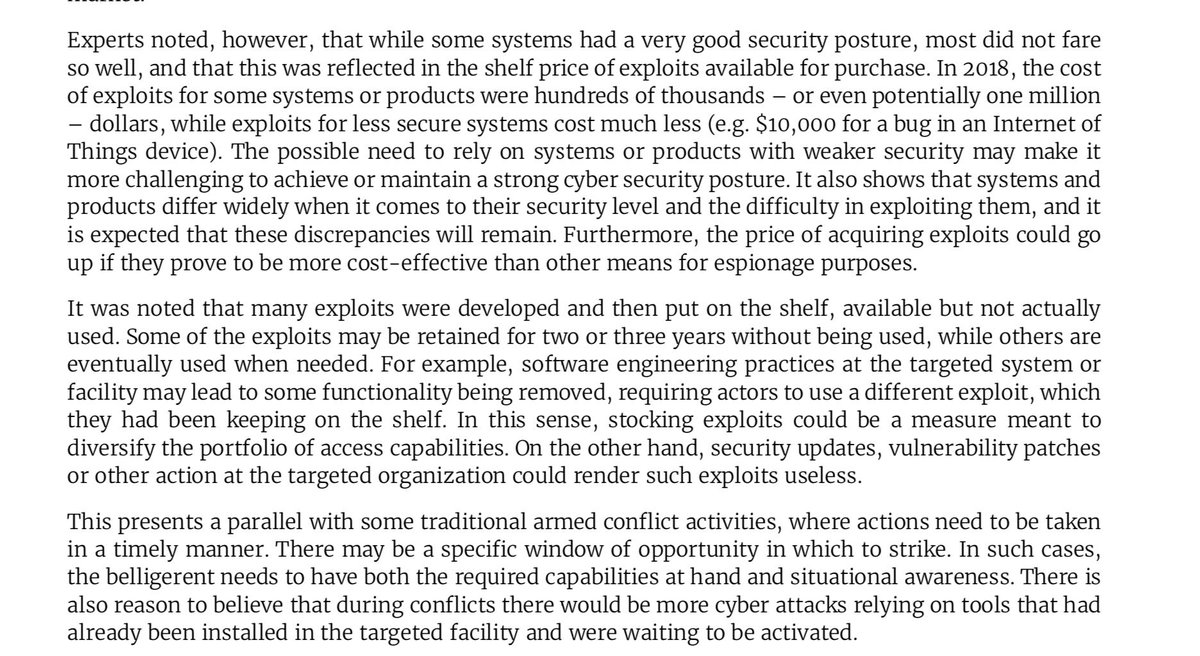
For example, entirely hypothetically, Russia could stage a false-flag cyber operation "as Ukraine". On itself. An operation that would evidently cross the war threshold, which is very simple to do with cyber. Then "legally" respond.
https://twitter.com/lukOlejnik/status/1473637010019598339
It may then be evidently and completely "legal" to self-defend, including by sending a tank division for an invasion, possibly with airborne support, why not.
It should also then be "understandable" to many Western States, because they already said that a significant cyberattack may necessitate a classical military-kinetic response. Russia could even argue that they are simply doing what the West has previously devised...
The possibility of a cyberattack on Ukraine is considered by @ChathamHouse's @KeirGiles in @Reuters reuters.com/article/us-ukr… 

• • •
Missing some Tweet in this thread? You can try to
force a refresh


